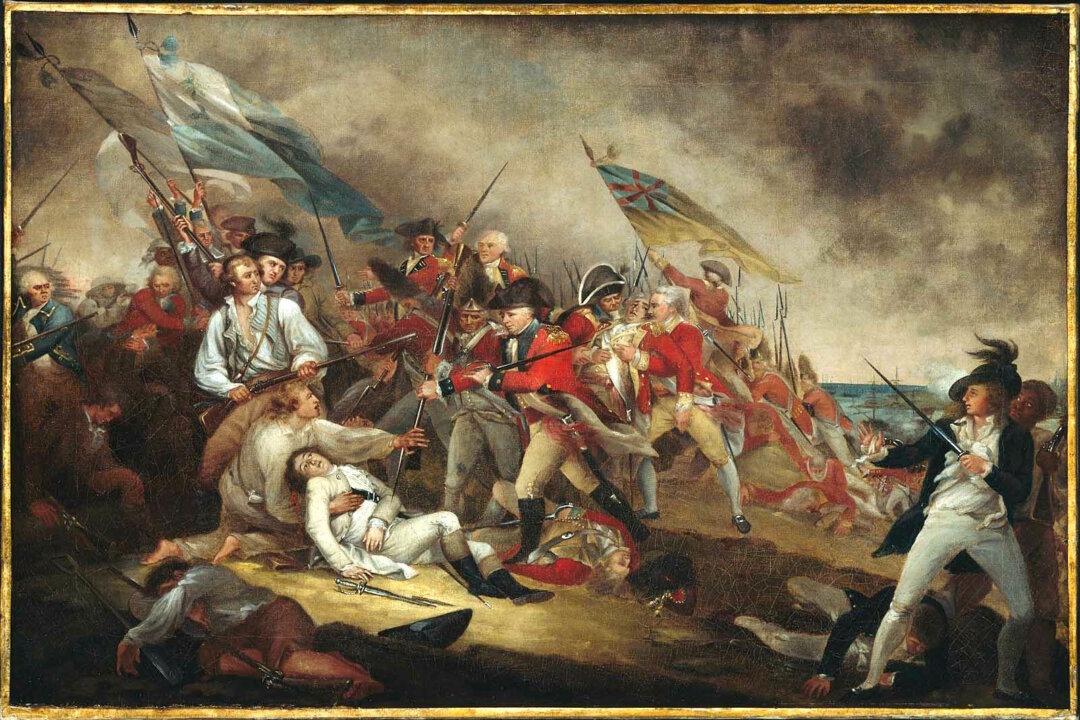During the afternoon of June 17, 1775, the British troops had twice marched up Breed’s Hill, part of a battle we now call Bunker Hill, and twice the Continentals had repulsed them, leaving their dead and wounded littering the ground.
Now came the third assault on the American redoubt. This time British general Sir Thomas Gage ordered his troops to take off their heavy packs and to attack the redoubt head-on with their bayonets. Short of ammunition, and lacking bayonets themselves, the Americans were forced to retreat. They gave up the ground they had fortified and defended, but the British were the real losers of the battle. Two hundred twenty-six of them fell to the Americans’ musket fire, while another 828 were wounded, the greatest losses suffered by their army for the rest of the long war. More than 100 of these casualties were commissioned officers.






